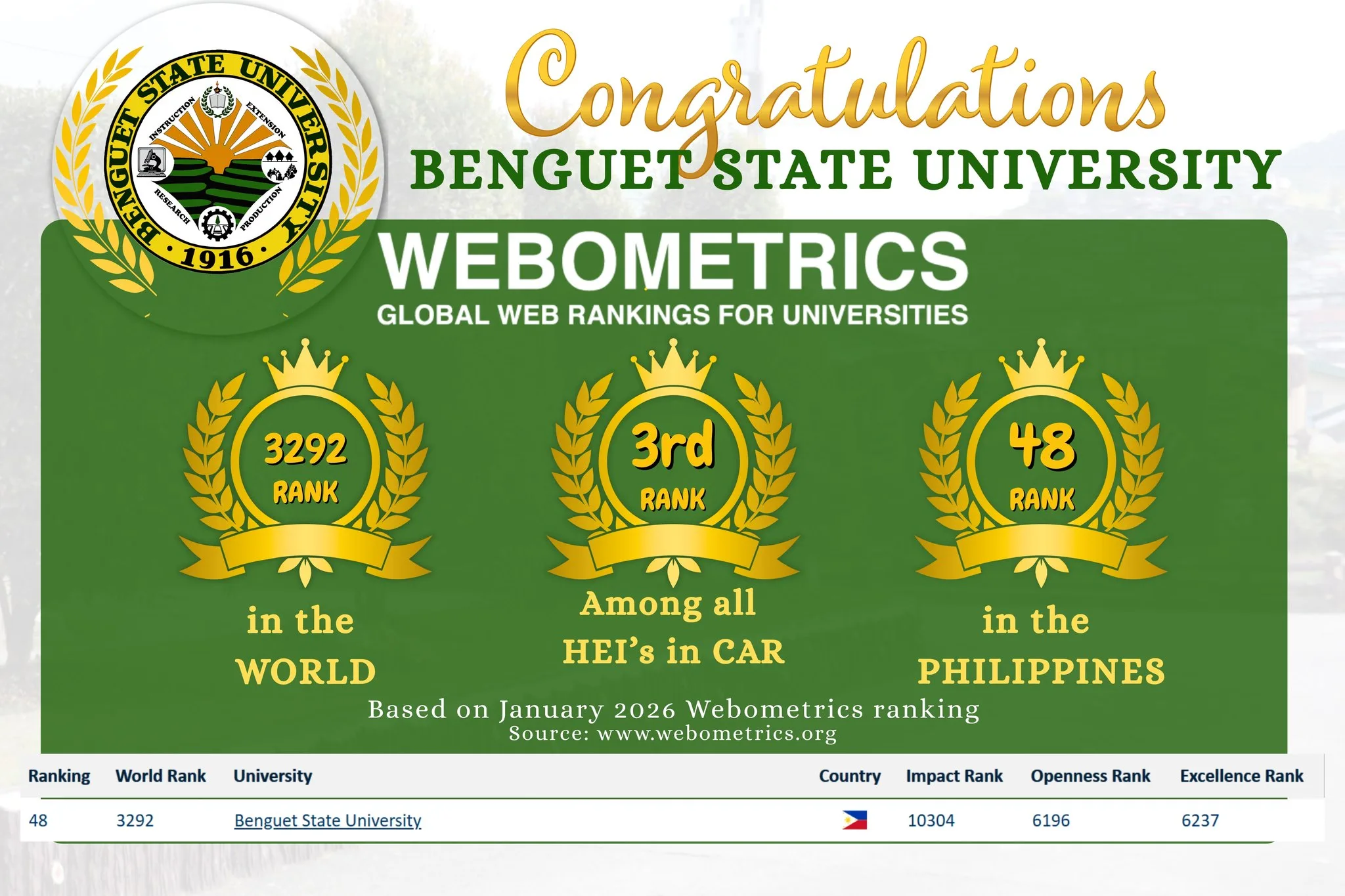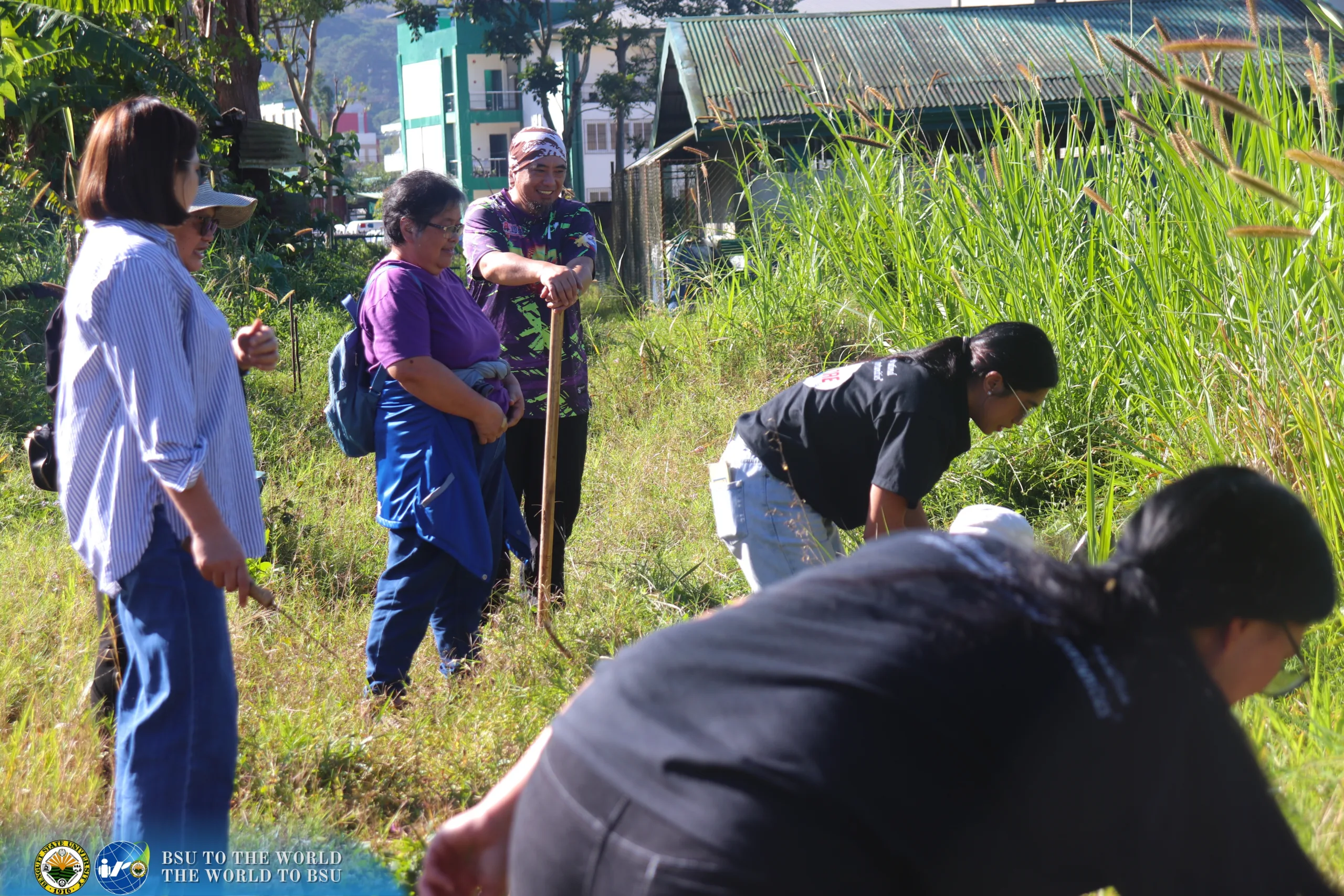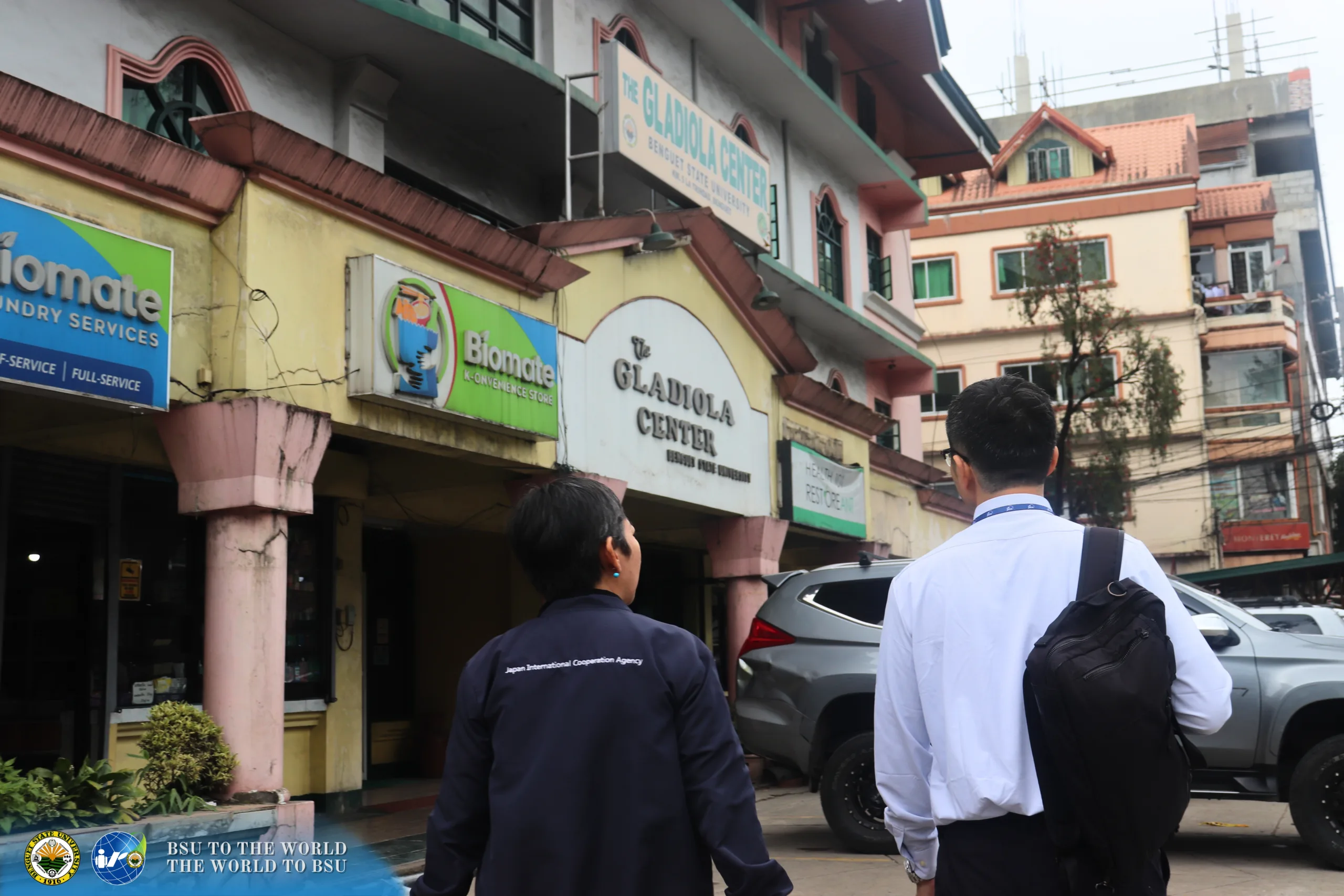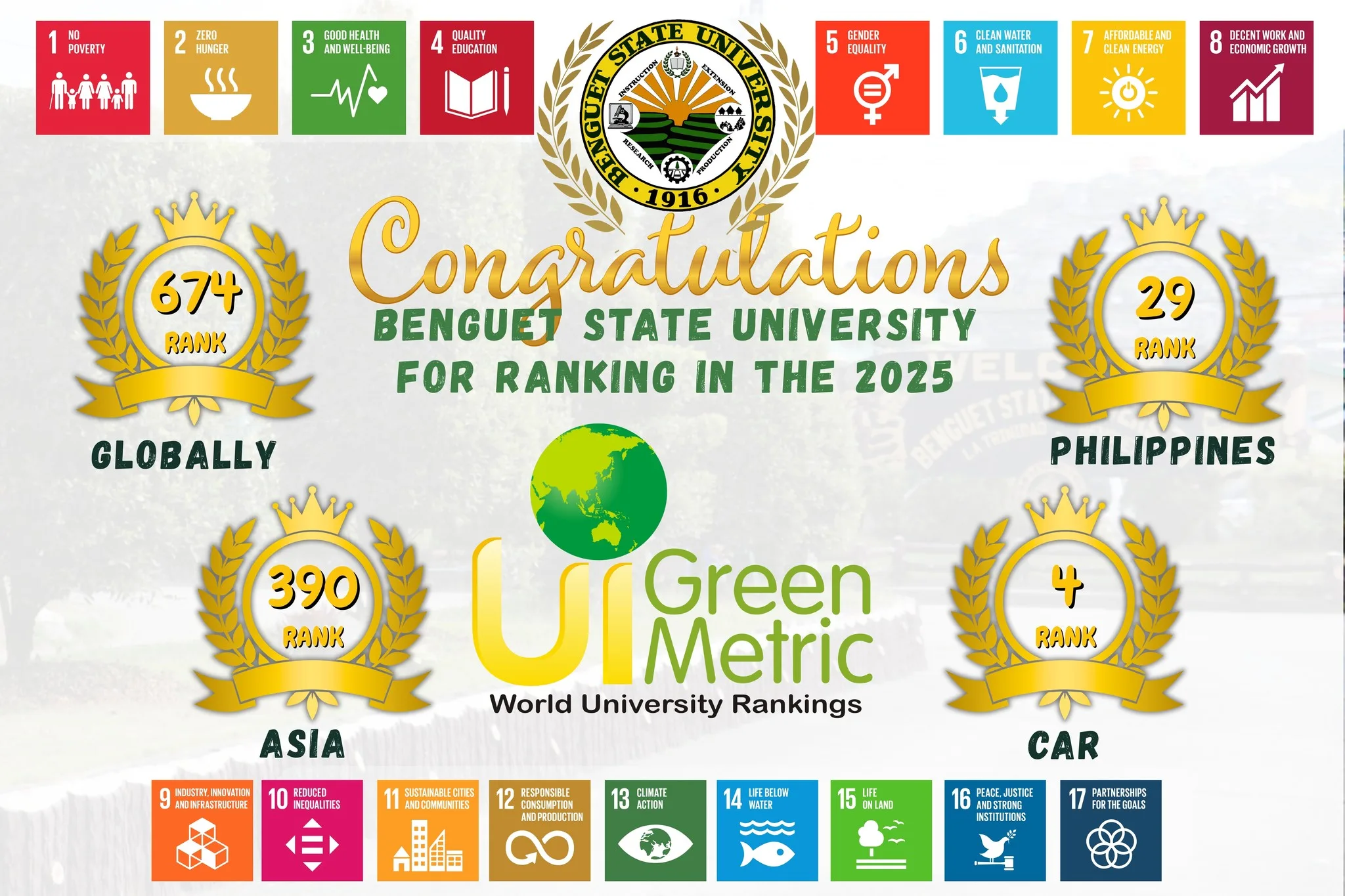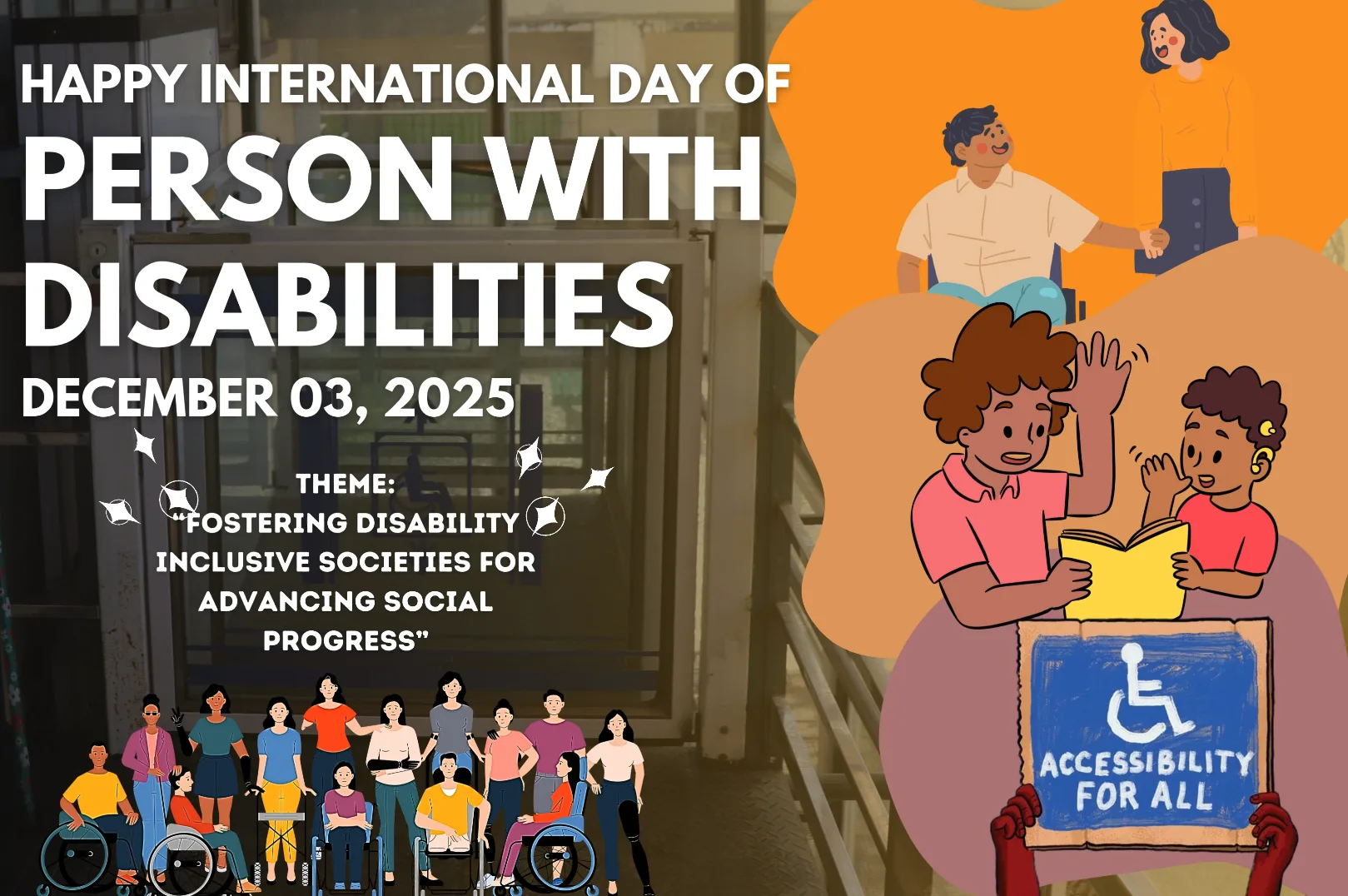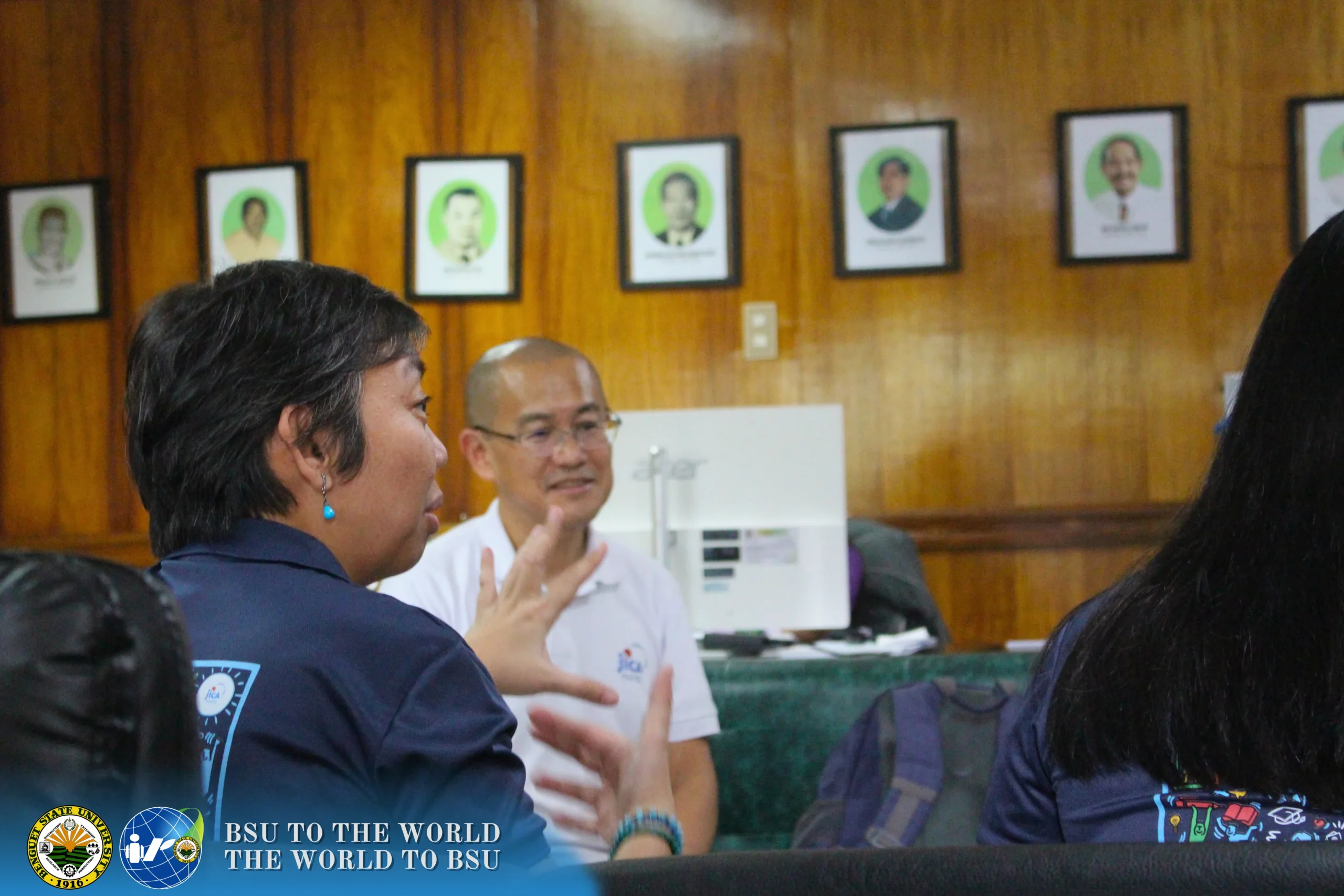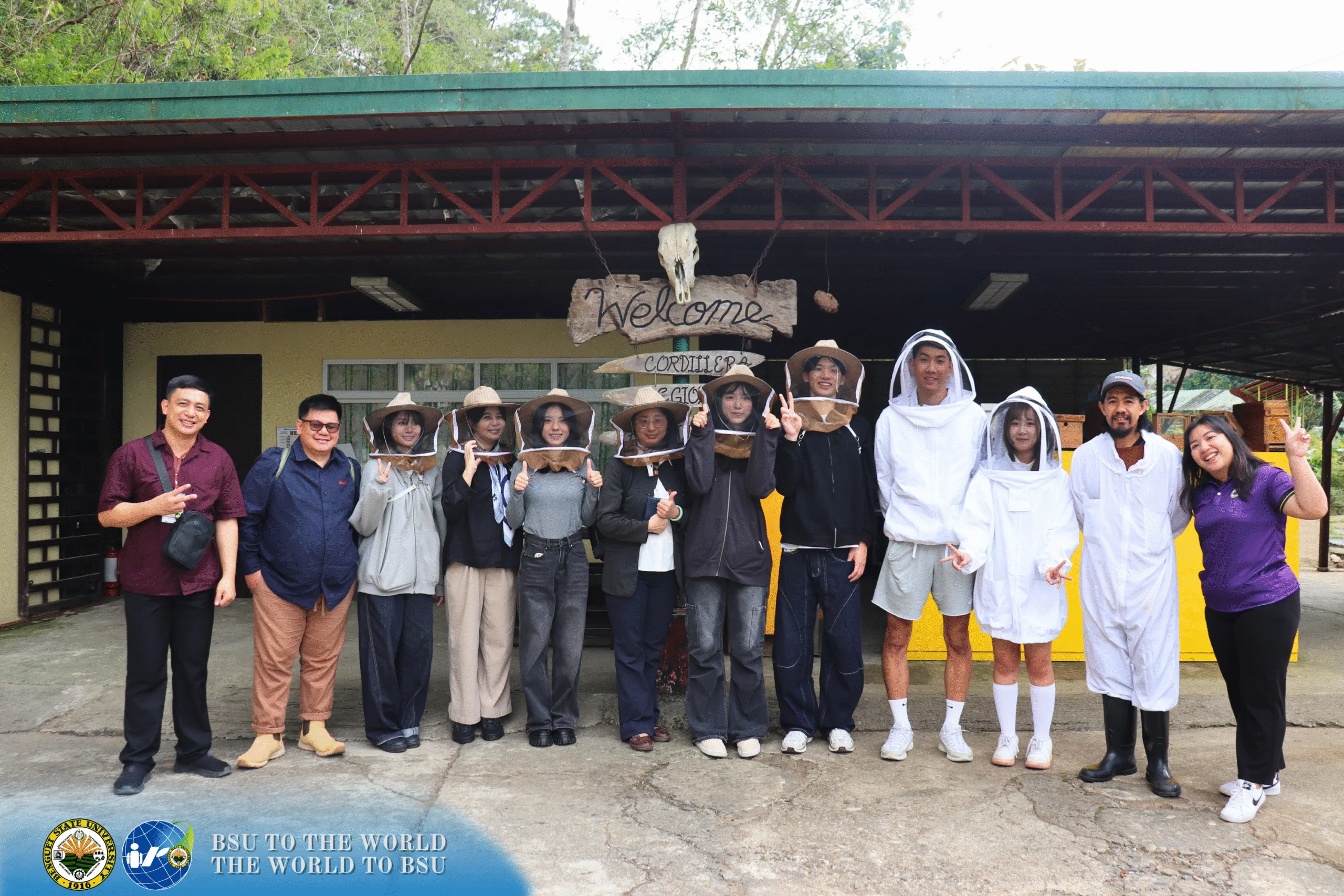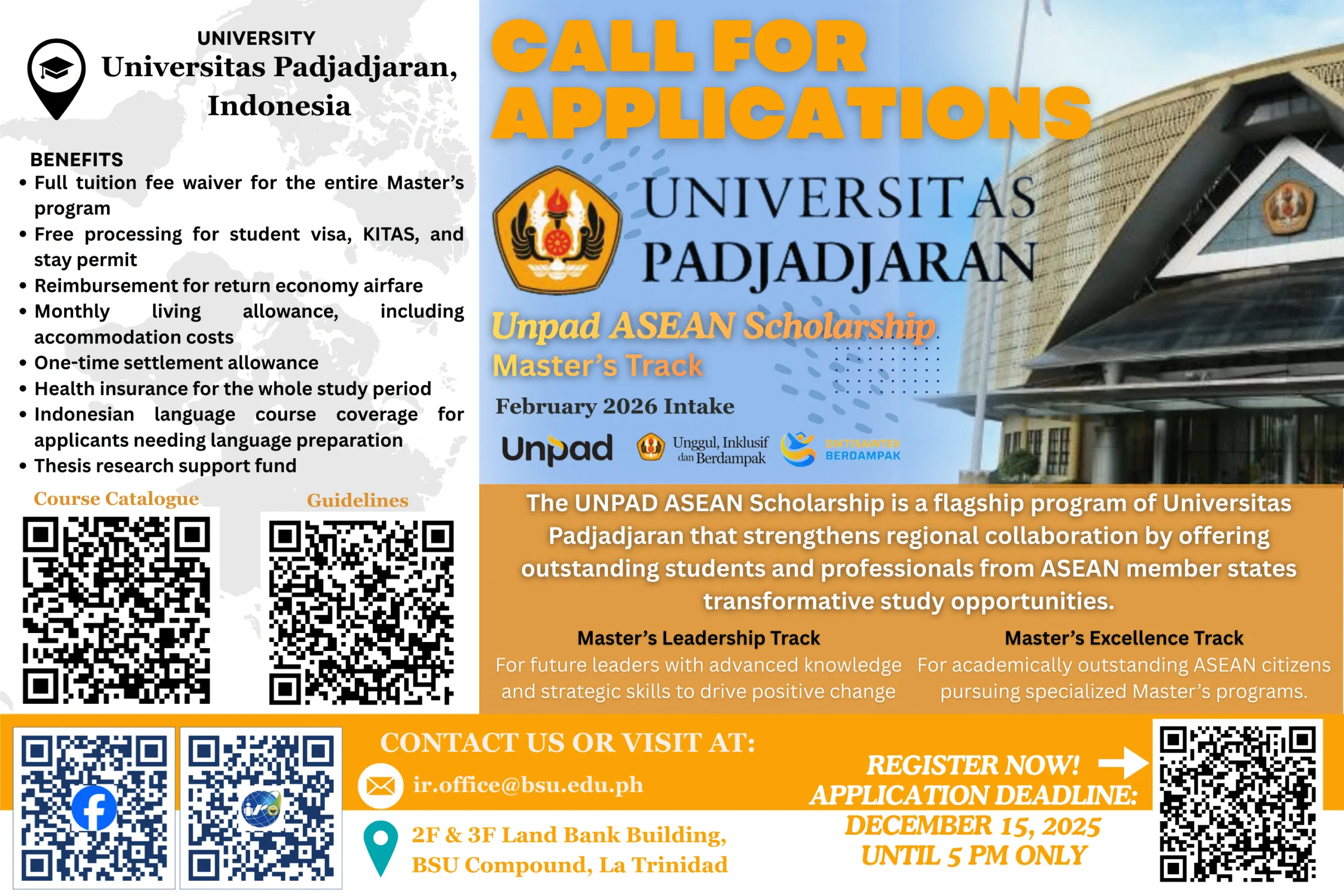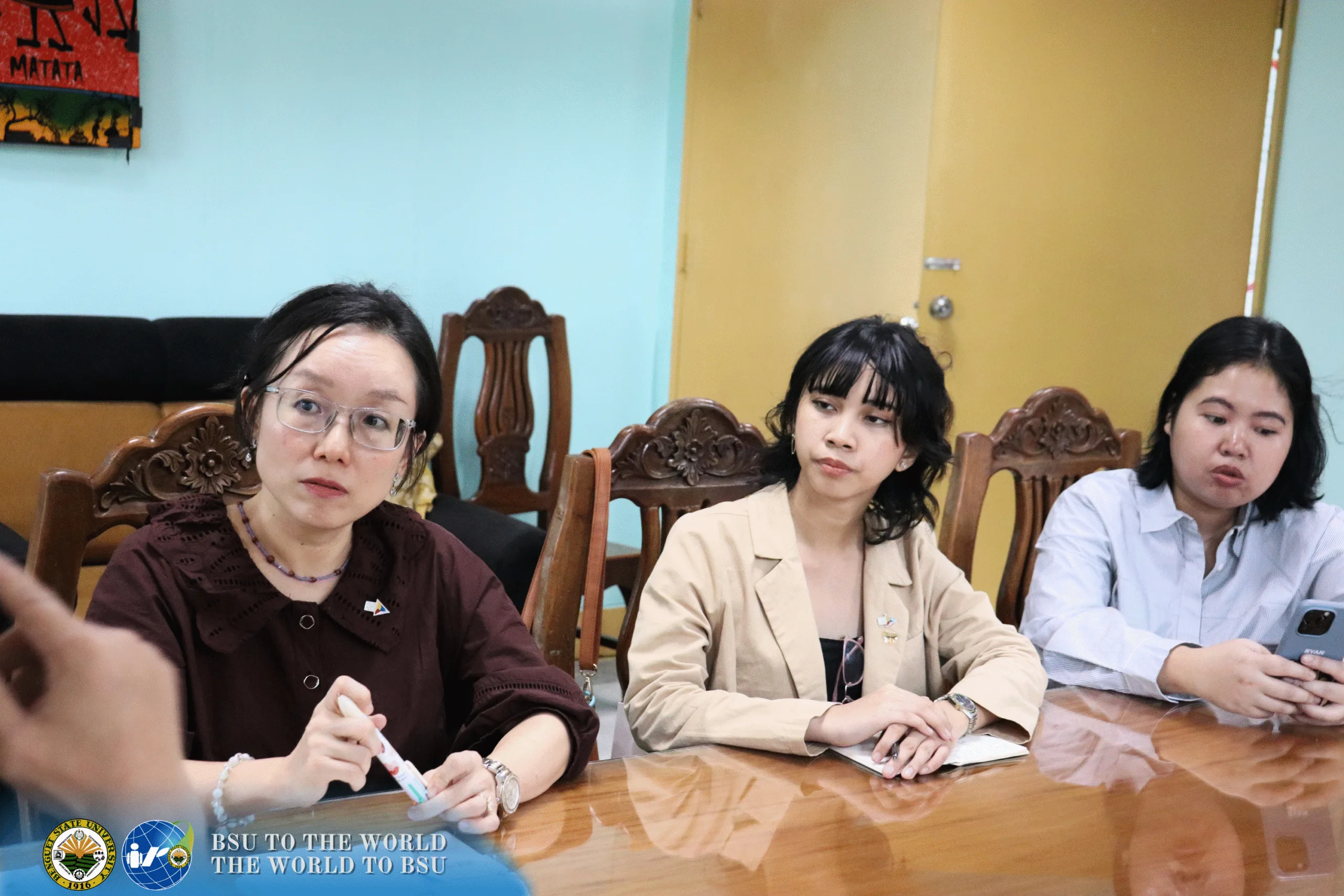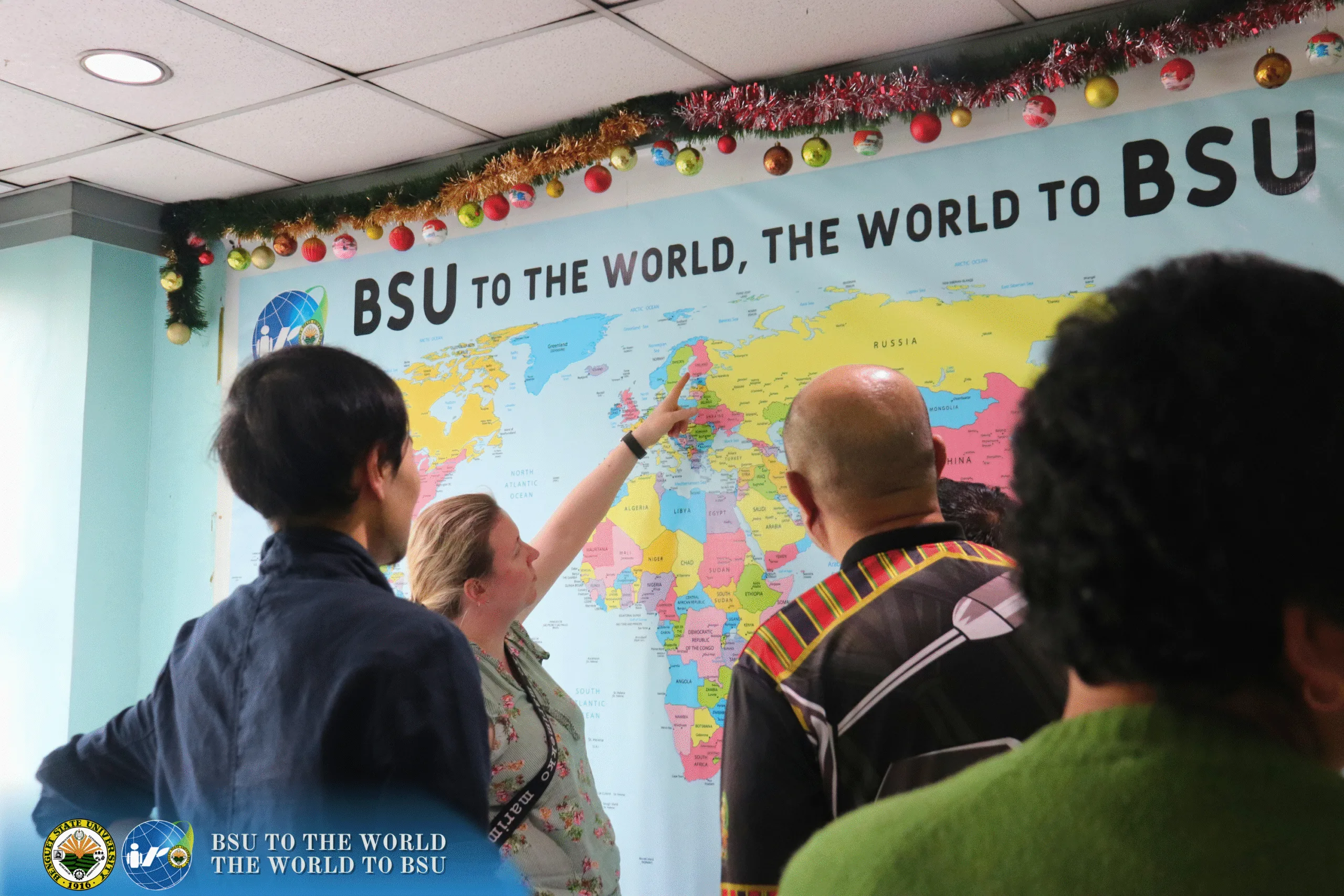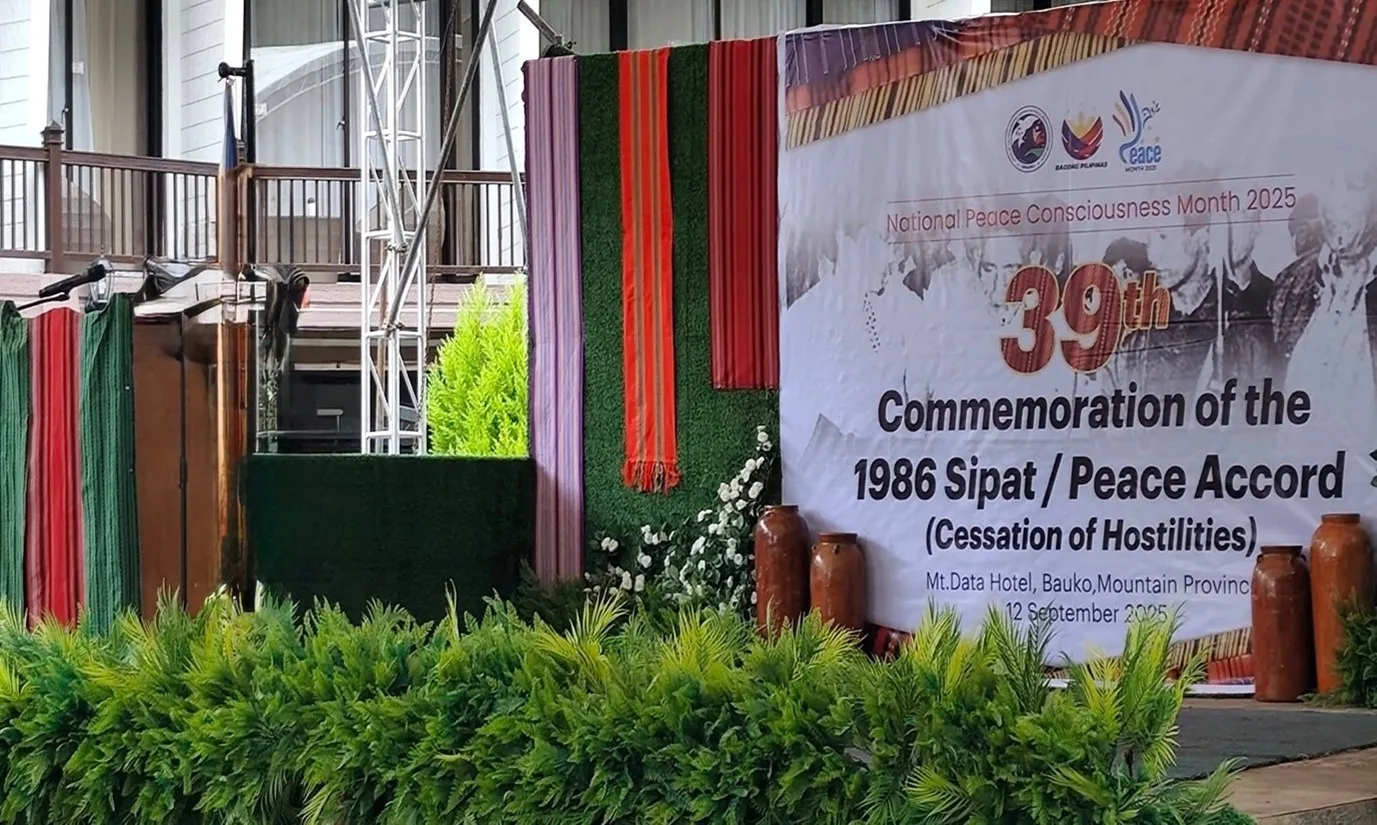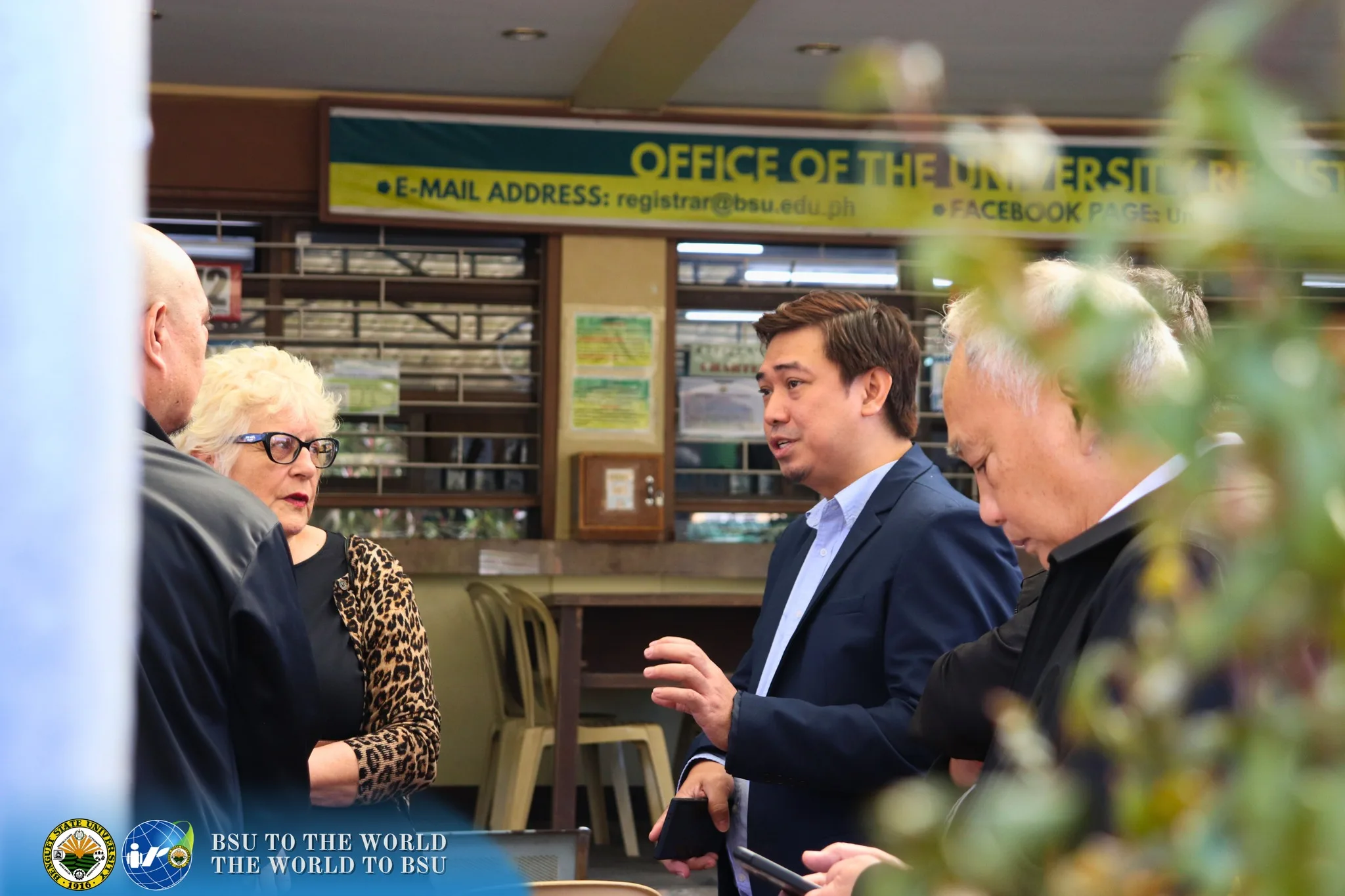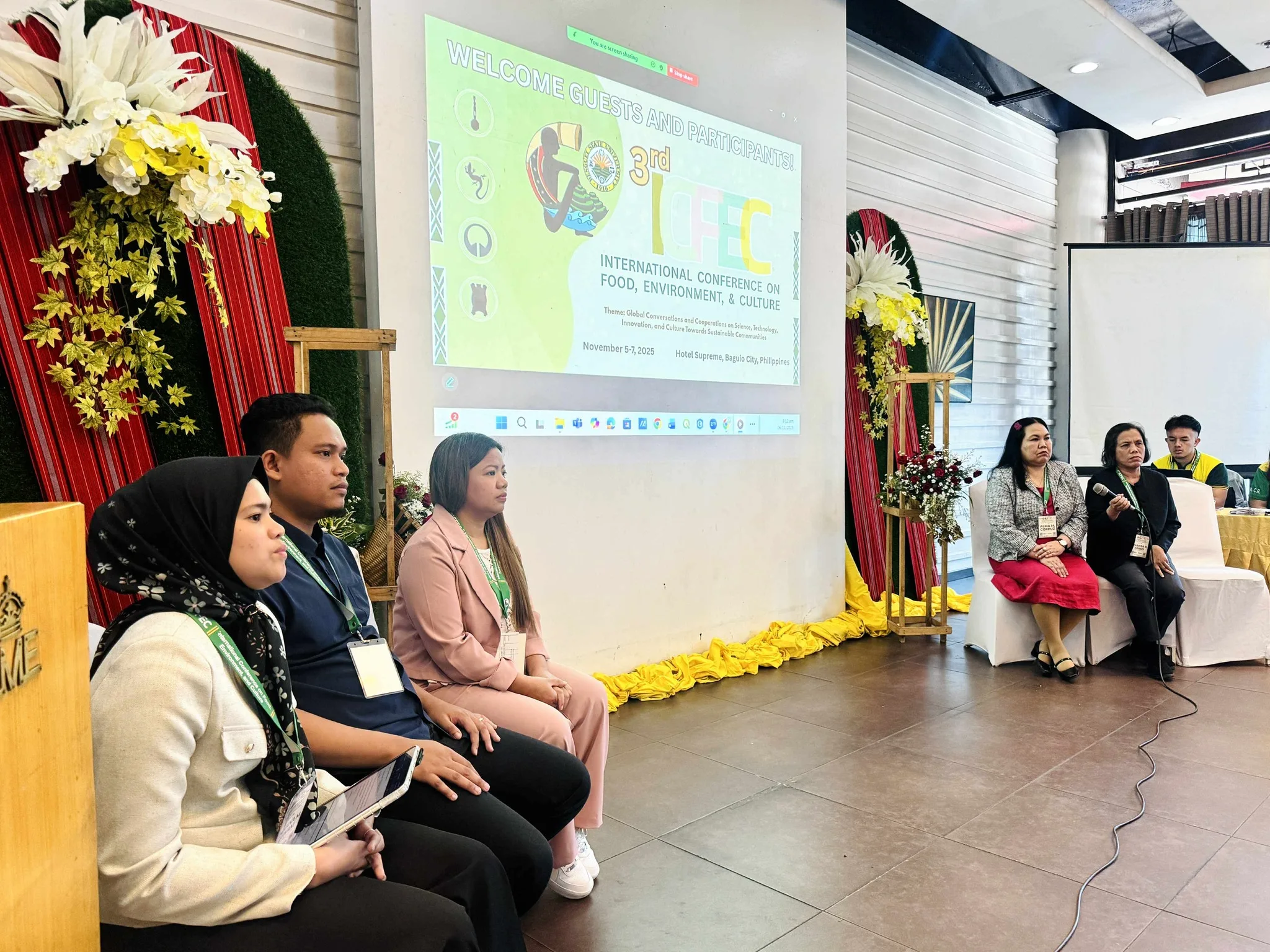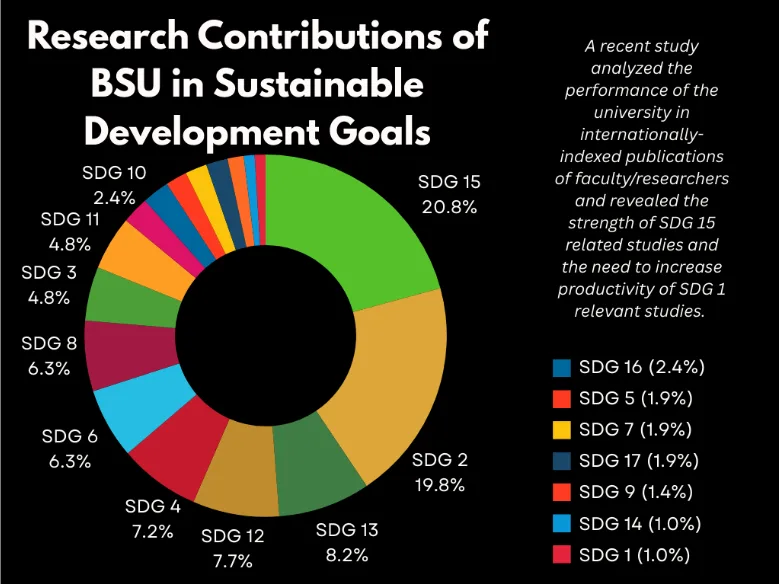
Benguet State University International Relations Office
June 2025
A recent study analyzing the performance of Benguet State University (BSU) in internationally-indexed publications has shed new light on the institution’s research contributions to the global Sustainable Development Goals (SDGs). Conducted by a team of university researchers, the study mapped BSU’s publications in Scopus and Web of Science to assess how the university’s research aligns with the 17 SDGs.
The findings reveal that BSU’s strongest contributions are in SDG 15 (Life on Land), alongside SDG 2 (Zero Hunger) and SDG 12 (Responsible Consumption and Production), reflecting the university’s agricultural heritage and its longstanding commitment to sustainability and environmental science. These results affirm the university’s role as a key contributor to research areas essential for ecological conservation and sustainable agriculture.
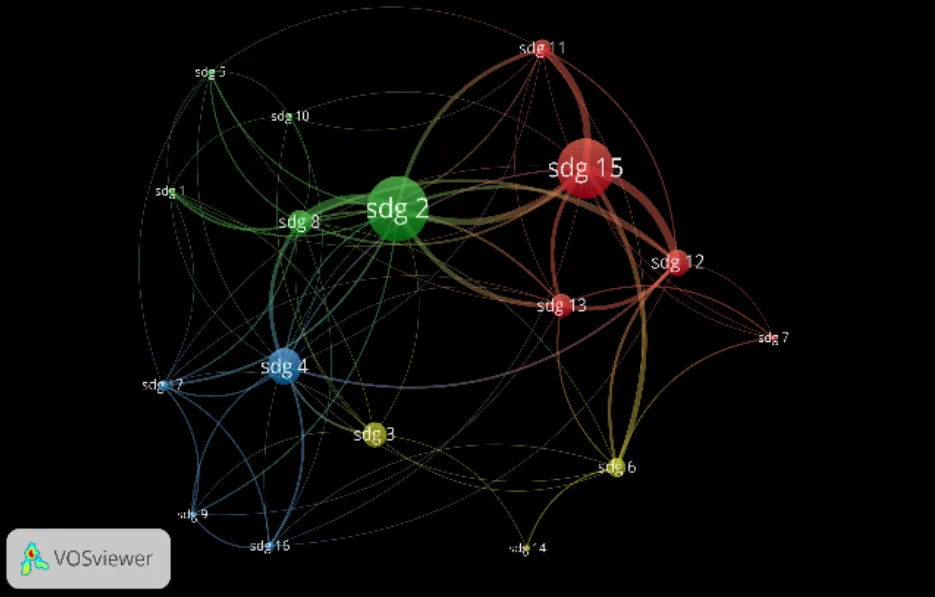
However, the study also highlighted an opportunity for growth: SDG 1 (No Poverty) emerged as one of the least represented goals in BSU’s indexed research outputs. Along with SDG 5 (Gender Equality), SDG 9 (Industry, Innovation and Infrastructure), and SDG 17 (Partnerships for the Goals), these areas represent critical fields where the university’s research productivity can be strengthened.
The study not only quantified output but also explored research dynamics. It revealed that BSU’s research landscape is still largely shaped by internal collaborations. There is significant potential to boost productivity and impact through expanded international partnerships and cross-disciplinary collaborations, especially in underrepresented SDG areas.
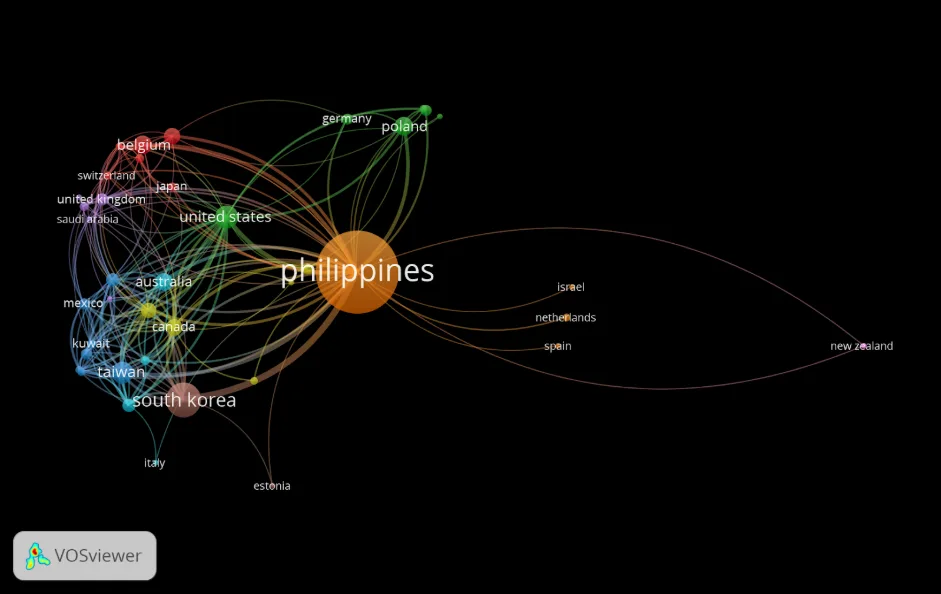
In addition, research trends are visibly shifting toward topics related to environmental sustainability and food security, suggesting that BSU is aligned with the global academic pivot toward these urgent concerns. The study also uncovered key drivers of research productivity such as prolific authorship, institutional clusters, and faculty engagement with higher-tier journals, emphasizing the importance of supportive incentive systems and institutional policies that recognize and reward SDG-aligned scholarly work.
This recent study builds upon the university’s earlier publication, “A Bibliometric Analysis of Benguet State University Research Journals (1977–2023): Implications for Library Resource Acquisitions, Access, and Services,” which was published in a Scopus-indexed journal. While the published study focused on in-house journals and highlighted BSU’s research strengths in agriculture, education, and social sciences, the new research expands the lens to internationally-indexed outputs. This provided a broader and more global perspective on BSU’s research productivity.
As the latest findings are disseminated, BSU encourages faculty and researchers to engage with the results, especially to identify underexplored SDG areas, strengthen international linkages, and maximize field-specific collaborations that can boost the university’s impact on sustainable development.



